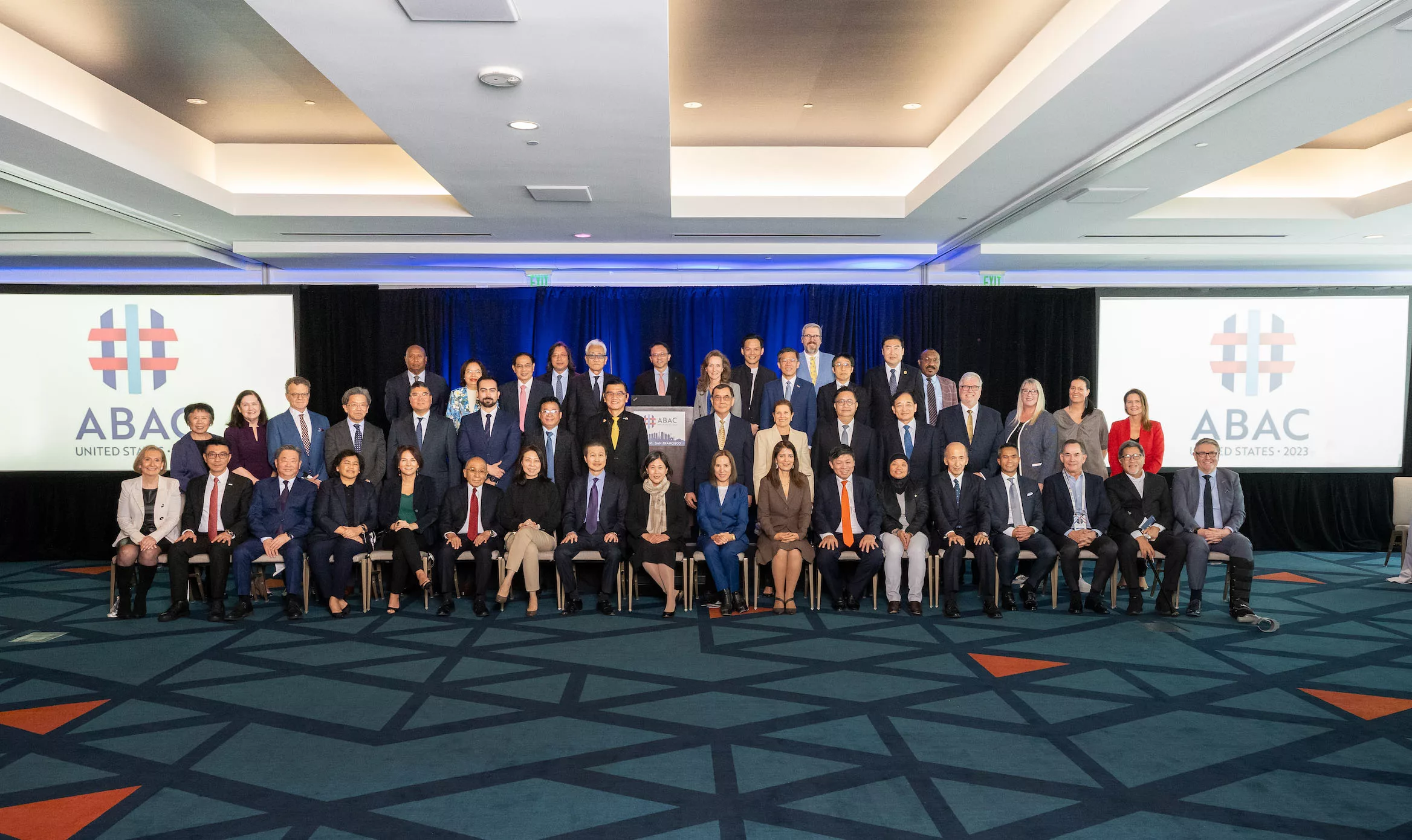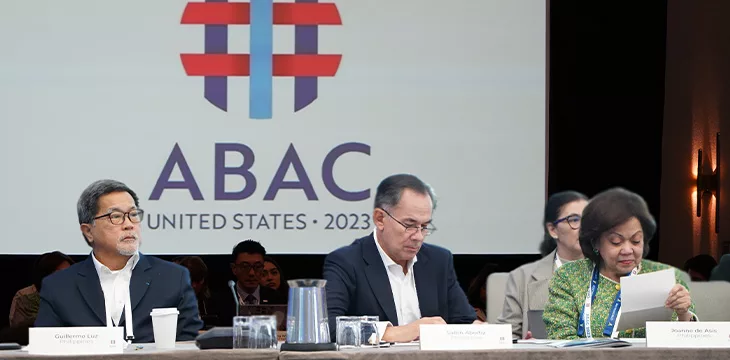|
Getting your Trinity Audio player ready...
|
A week after the APEC Business Advisory Council (ABAC) meetings in San Francisco, California, ABAC Philippines reaffirmed its commitment to sustained dialogue and critical recommendations for APEC leaders. The collaboration, involving private sector business leaders from the 21 APEC economies, aims to foster ongoing engagement on critical issues.
For ABAC Philippines members Sabin Aboitiz, Joanne De Asis, and alternate member Bill Luz, keeping President Ferdinand Marcos Jr. abreast of the pivotal outputs and recommendations from the ABAC meetings remains a top priority. Aboitiz, serving as the Lead Convenor of the Private Sector Advisory Council (PSAC), intends to utilize this avenue to maintain communication with President Marcos.
Acknowledging the importance of collective strategies in addressing the multifaceted challenges in the Asia-Pacific region, ABAC remains steadfast in advocating for sustainable economic growth, innovation, and inclusivity.

Dominic Ng, ABAC 2023 Chair, highlighted the recent discussions with APEC leaders, emphasizing the necessity of ongoing dialogues to address contemporary challenges. “Our meeting with APEC Leaders stressed our belief that successful navigation in an increasingly fragmented environment is only feasible through collaboration,” Ng stated.
Ng highlighted ABAC’s proposals, advocating for more accessible open markets, trade, and digital innovation, including support for a Free Trade Area of the Asia-Pacific. The council also reiterated its commitment to global regulations overseen by the World Trade Organization.
Furthermore, ABAC emphasized the importance of two critical themes—artificial intelligence (AI) and climate response—reaffirming its dedication to an economic framework aligned with fairness, inclusion, and environmental stewardship.
“ABAC’s Climate Leadership Principles—focused on reduction, adaptation, and just transitions—can guide urgent practical actions, including finance, climate-smart trade, and protecting the most vulnerable,” Ng elaborated.
Meanwhile, Aboitiz emphasized ABAC’s pivotal role in fostering collaboration among data providers, users, and regulators to enhance climate resilience and regional energy stability. “Our mandate is clear: addressing climate change, ensuring energy security and sustainability, and fostering resilient food systems,” Aboitiz remarked.
Aboitiz, also this year’s Vice Chair of the ABAC Sustainable Growth Working Group, reported progress on the Climate Risk Scenarios project—an online platform to provide seamless access to climate data. A proposed standardized playbook aims to guide this initiative.
Beyond the climate initiatives, Aboitiz underscored the significance of long-term investments and collaborative strategies between the public and private sectors to harness nuclear energy as a viable and sustainable mixed energy source. ABAC’s discussions with APEC finance ministers emphasized climate concerns, calling for increased collaboration at Dubai’s upcoming UN climate conference.
The meeting concluded with Mr. Ng handing over the chairmanship to Julia Torreblanca from ABAC Peru, who will lead ABAC next year. The incoming chair emphasized that in 2024, ABAC’s focus will be on ‘People, Business, and Prosperity.’
“Our aim is to build on this year’s achievements by promoting regional economic integration, sustainability, and human development. We plan to leverage catalysts like digitalization, innovation, finance, and investment,” Ms. Torreblanca noted.
About ABAC Philippines
APEC Leaders, in 1995, established the APEC Business Advisory Council (ABAC) tasked to provide a private sector perspective towards achieving free and open trade and investments in the Asia Pacific region (Bogor goals). In 2020, Leaders adopted the Putrajaya Vision for an open, dynamic, resilient, and peaceful Asia-Pacific community by 2040 for the prosperity of all our people and future generations.
The Council had its first meeting and dialogue with the Leaders in 1996 when the Philippines first chaired APEC. Ambassador Roberto Romulo of the Philippines served as ABAC’s founding chairman.
Every year, ABAC submits a Report to APEC Leaders outlining key recommendations on regional economic integration. ABAC also engages with Ministers, especially those responsible for Trade, Finance, SME, Energy, Food Security, Health, and Women, to address urgent challenges.
ABAC Members representing the Philippines are Aboitiz Group President and CEO Sabin Aboitiz, Tomas Alcantara, Chair of ABAC Philippines, Joanne de Asis, Globe Capital Partners LLC Chairperson, Francis Chua, Founding Chairman of the International Chamber of Commerce, Philippines (ICCP), and Liveable Cities Challenge Chairman Guillermo Luz.

 02-17-2026
02-17-2026 




